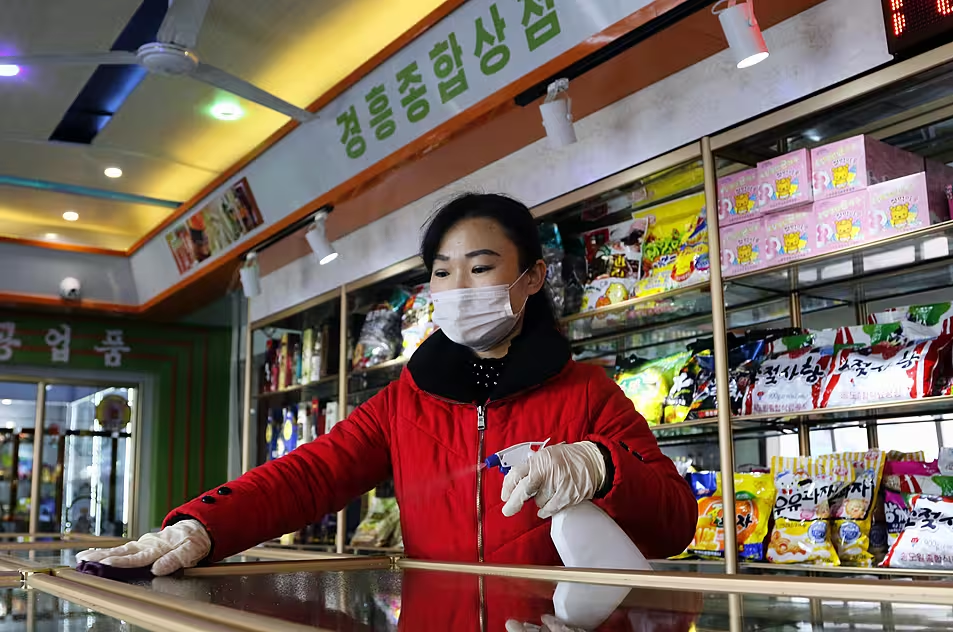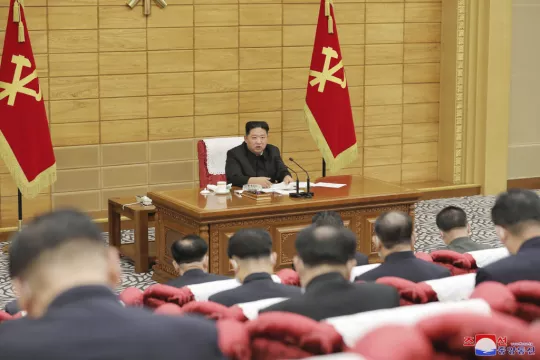North Korea has reported 21 new deaths and 174,440 more people with fever symptoms.
The country made the announcement on Saturday as it scrambles to slow the spread of Covid-19 across its unvaccinated population.
The new deaths and cases, which were from Friday, increased total numbers to 27 deaths and 524,440 illnesses amid a rapid spread of fever since late April.
North Korea said 243,630 people had recovered and 280,810 remained in quarantine.

State media didn’t specify how many of the fever cases and deaths were confirmed as Covid-19 infections.
The country imposed what it described as maximum preventive measures on Thursday after confirming its first Covid-19 cases since the start of the pandemic.
It had previously held for more than two years to a widely doubted claim of a perfect record keeping out the virus that has spread to nearly every place in the world.

North Korean leader Kim Jong Un during a ruling party Politburo meeting on Saturday described the outbreak as a historically “great upheaval” and called for unity between the government and people to stabilise the outbreak as quickly as possible.
Officials during the meeting mainly discussed ways to swiftly distribute medical supplies the country has released from its emergency reserves, Pyongyang’s official Korean Central News Agency said.
In a report presented to the Politburo, the North’s emergency epidemic office blamed most of the deaths on “mistakes like overmuch taking of drugs, bereft of scientific medical treatment”.

Mr Kim, who said he was donating some of his private medicine supplies to help the anti-virus campaign, expressed optimism that the country could bring the outbreak under control.
He added that most transmissions are occurring within communities that are isolated from one another and not spreading from region to region.
He called for officials to take lessons from the successful pandemic responses of other nations and picked an example in China, the North’s major ally.
Experts say a failure to control the spread of Covid-19 could have devastating consequences in North Korea, considering the country’s poor health care system and that its 26 million people are largely unvaccinated.







